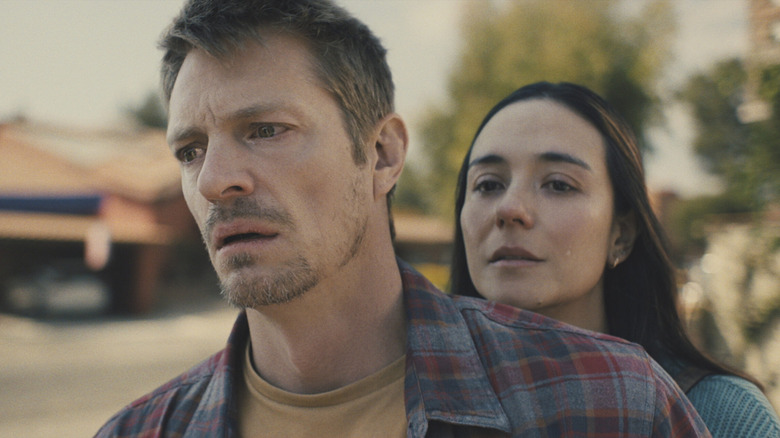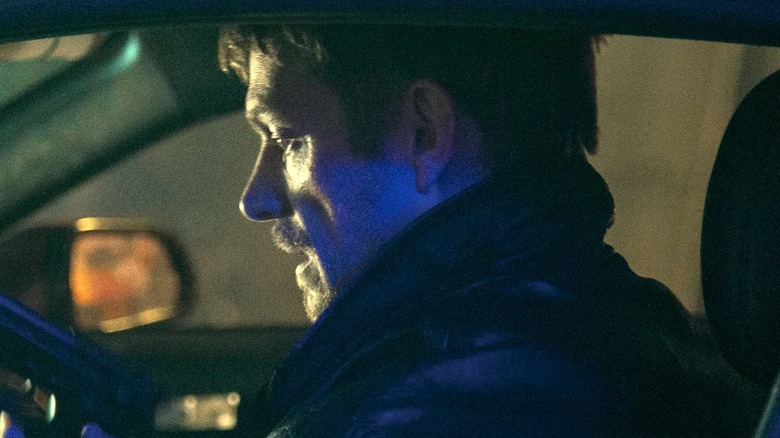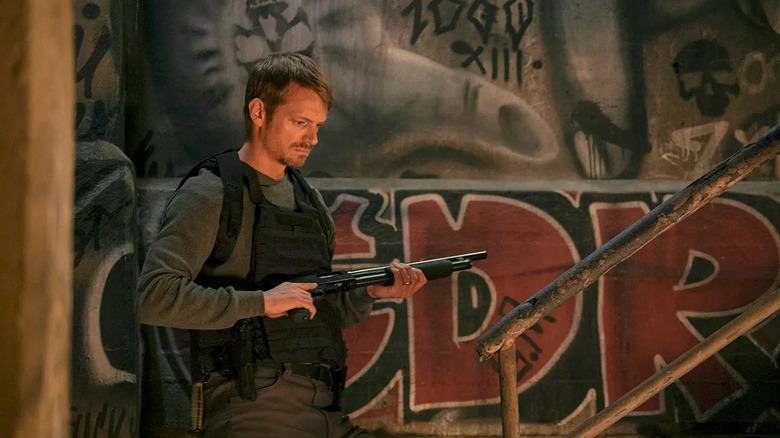Legendary Action Director John Woo Talks About Switching Up His Style For Silent Night [Exclusive Interview]
If action has a name, it must be John Woo. The Hong Kong director has been making grandiose, pulse-pounding, operatic action epics since he began making films in his native country during the early 1970s. Coming off triumphs like "The Killer," the "A Better Tomorrow" duology, and "Hard Boiled," Woo arrived in America with the Jean Claude Van Damme banger "Hard Target" and reshaped the Hollywood action film for a solid ten years. Although he chose to step away from the Hollywood grind after 2003's "Paycheck," he's never stopped making movies, and in fact has expanded and further developed his trademark style with each successive feature.
Two decades after "Paycheck," Woo is finally making his return to Hollywood and the English-language action film by making *checks notes* a drama-heavy action movie where barely any dialogue of any language is spoken. That's right, John Woo isn't done experimenting with cinema. "Silent Night" takes Woo's action and mixes it with 87eleven's unique brand of stunt training and choreography (courtesy of stunt coordinator Jeremy Marinas) while telling the tragic story of Brian Godlock (Joel Kinnaman), an average family man who takes the accidental murder of his young son as a Charles Bronson-like call to arms, choosing to wage war on local street gangs all on his own.
I had the distinct pleasure of speaking to Mr. Woo for a few brief minutes on the eve of the film's release, and the kind, thoughtful legend spoke about switching up his style for this movie, relying on his cast and crew to bring their A-games, and making sure the emotion in the film was as dialed up as the punches and gunshots.
Note: This interview has been lightly edited for clarity and brevity.
'I got rid of my usual style'
I feel "Silent Night" is one of the better "no-dialogue" movies because it feels like it takes place in a world where people do speak, yet there's just no dialogue present. How did you work with the script, in terms of building this world of no dialogue but there's still sound, and that sort of thing?
So with the script, I feel so excited, I see that you have no dialogue, I [said] it could allow me to [use] my usual technique [or] I could use more the visuals and sounds for telling the story, and tell how the character feels. And then I think [it's] also good to allow the actors, my good actors like Joel and everyone, can deliver their real performances from their heart. The audience looks straight into their eyes, and they're more focused on their face and the feel of their emotion. So more direct. There's no need to worry about the dialogue, no need to hear other sounds. So real contact, much better contact in this film, it's a good thing.
The other thing is for this movie, I realize that it almost feels like a true story, and it could happen to any family. It could happen. Like a gang fight, and the innocent kid that got killed, and then it could really happen to anyone, to any family. I tried to make the movie more about these things. Even though the fight scenes, I got rid of my usual style. My usual style is like too many gunshots, too fancy. I need to show the real fight, the real anger, the real hatred for the crime. So I'm using some new techniques, like most action sequences I'm using a long take, a long take without any cuts, without shutting the camera, to make the audience feel it's real. Every punch, every hit, always sounds real and looks real. So I think you've got more of a good impact, and it also makes the audience more involved with the character. Not only just fights.
'Okay, change that'
So much of this movie is non-stop drama instead of non-stop action, and then you get to that last act and it's hard-hitting, literally and figuratively. How did you pace out shooting the film, in terms of the action, but also the drama? Did you put all the setpieces at the end of the schedule, or were they interspersed throughout the shoot? How was shooting in Mexico with their stunt teams there?
Well, we had a pretty tight schedule. We only got 38 shooting days. But my team, my stunt team, most of them came from the "John Wick" stunt group. And in particular, Joel Kinnaman, he worked so hard. They spent two months just training, training every fight scene. Every morning they're training the fight scene. So when I'm on set, I'm not putting much time, too much time on rehearsal. So whatever they had, [they] came up [with] some good idea for the fight and practicing the fight. They usually show me the tape, show me the videotape, how they work, and then I give some little instruction. "Okay, change that." So whenever we're on the set, we already get ready, and they come on set and they just do it without any real rehearsal because we have no time for that. And what they did was so precise, so it was exactly what I want, and exactly what everybody wants. So mainly it's that Joel and the stunt coordinator, they took it very seriously.
"Silent Night" hits theaters on December 1, 2023.


